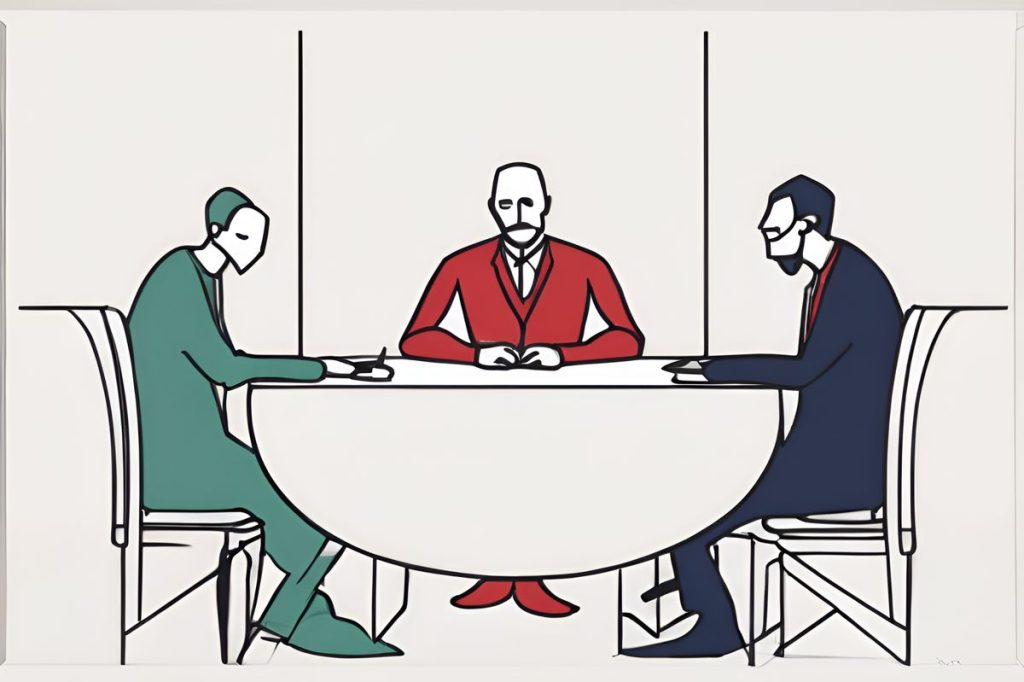The upcoming tripartite meeting in New York on October 15 brings together Greek Cypriot President Nikos Christodoulides, Turkish Cypriot leader Ersin Tatar, and UN Secretary-General Antonio Guterres to advance the peace process in Cyprus. Despite deep divisions over solutions, negotiator Menelaos Menelaou remains hopeful that this gathering will spark meaningful dialogue and pave the way for lasting peace and stability in the region.
What is the significance of the upcoming tripartite meeting for Cyprus resolution?
The upcoming tripartite meeting in New York is crucial for advancing the peace process in Cyprus. Key figures will aim to move beyond ceremonial talks and resume meaningful dialogue, despite challenges such as divergent views on a resolution. The meeting represents an opportunity for progress towards peace and stability in the region.
A Pivotal Gathering in New York
The critical nature of the Cyprus issue calls for significant diplomatic efforts and the upcoming tripartite meeting in New York is no exception. Slated for October 15, key figures will gather in a bid to advance the peace process. The Greek Cypriot negotiator, Menelaos Menelaou, has expressed a determined optimism ahead of this encounter. With the involvement of Greek Cypriot President Nikos Christodoulides, Turkish Cypriot leader Ersin Tatar, and UN Secretary-General (UNSG) Antonio Guterres, expectations are high for progress. Menelaou, speaking at an Akel conference, emphasized the importance of building upon current efforts to reinvigorate dialogue.
Despite the complexities, the Greek Cypriot side remains committed to ensuring that the upcoming dinner is not just ceremonial but a stepping stone towards resuming meaningful conversations. This meeting is viewed as a crucial juncture, potentially leading to a robust evaluation of initial contacts made by the UN’s personal envoy, Maria Angela Holguin, and setting the stage for subsequent measures.
Challenging Diplomatic Terrain
The road to resolution is fraught with challenges, and Menelaou did not shy away from acknowledging the “difficult environment” that the Greek Cypriot side faces. At the core of current tensions lies a stark divergence in views between the involved parties. Tatar’s push for a two-state solution starkly contrasts with the historical compromise and agreed basis that have long underpinned negotiations. Menelaou revealed that the Turkish side has been unresponsive, highlighting a significant hurdle in the path to peace.
Yet, the dedication to push forward remains undeterred. The Greek Cypriot engagement with the UN’s personal envoy has been described as substantive, aligning with the broader aim of preserving the acquis, which encompasses settlement bases, convergences, and the six points outlined by the UNSG. Such efforts, despite the lack of reciprocity, reflect a deep-seated commitment to finding a resolution.
The Bigger Picture: Stability and Peace at Stake
In the broader geopolitical context, Menelaou underscored the urgency of intensified efforts and pragmatic approaches to revitalize the political process. The ultimate goal remains a resolution to the Cyprus problem, a sentiment rooted in the belief that there are no frozen conflicts. The negotiator stressed that unresolved conflicts do not equate to stability or peace; rather, they fester, potentially escalating to significant threats, including the prospect of widespread war.
The sentiment serves as a powerful reminder of what’s at stake—the peace, stability, and security of the region. It’s a clarion call for all involved parties to not only engage in dialogue but to do so with an aim to produce tangible outcomes. The tripartite meeting in New York is more than a diplomatic formality; it’s a crucial opportunity to make strides toward a long-awaited and much-needed resolution for Cyprus.
What is the significance of the upcoming tripartite meeting for Cyprus resolution?
The upcoming tripartite meeting in New York on October 15 is significant as it aims to advance the peace process in Cyprus. Key figures—Greek Cypriot President Nikos Christodoulides, Turkish Cypriot leader Ersin Tatar, and UN Secretary-General Antonio Guterres—will gather to move beyond ceremonial discussions and engage in meaningful dialogue. Despite existing challenges and differing views on a resolution, this meeting represents a crucial opportunity for progress toward lasting peace and stability in the region.
Who are the key participants in the tripartite meeting?
The key participants in the tripartite meeting are Greek Cypriot President Nikos Christodoulides, Turkish Cypriot leader Ersin Tatar, and UN Secretary-General Antonio Guterres. Their involvement underscores the meeting’s importance and potential to address the complex challenges surrounding the Cyprus issue. Additionally, the Greek Cypriot negotiator Menelaos Menelaou will play an essential role in facilitating discussions and promoting constructive dialogue among the parties.
What challenges are expected to arise during the meeting?
The tripartite meeting is anticipated to face several challenges, primarily stemming from differing perspectives on the resolution of the Cyprus issue. Notably, Turkish Cypriot leader Ersin Tatar’s proposal for a two-state solution contrasts sharply with the historical compromises that have previously guided negotiations. Furthermore, the Greek Cypriot negotiator has highlighted a “difficult environment,” noting unresponsiveness from the Turkish side as a significant hurdle. Despite these challenges, there remains a commitment from the Greek Cypriot side to ensure that the meeting results in substantive dialogue.
Why is it important to resolve the Cyprus issue?
Resolving the Cyprus issue is critical for ensuring peace, stability, and security in the region. As emphasized by negotiator Menelaos Menelaou, unresolved conflicts can fester and may escalate into significant threats, including the risk of widespread war. The tripartite meeting in New York represents not just a diplomatic formality but an essential step toward addressing these unresolved tensions. Engaging in meaningful dialogue with the aim of producing tangible outcomes is vital for moving toward a long-awaited resolution, which is crucial for the well-being of both communities on the island and the broader geopolitical landscape.

